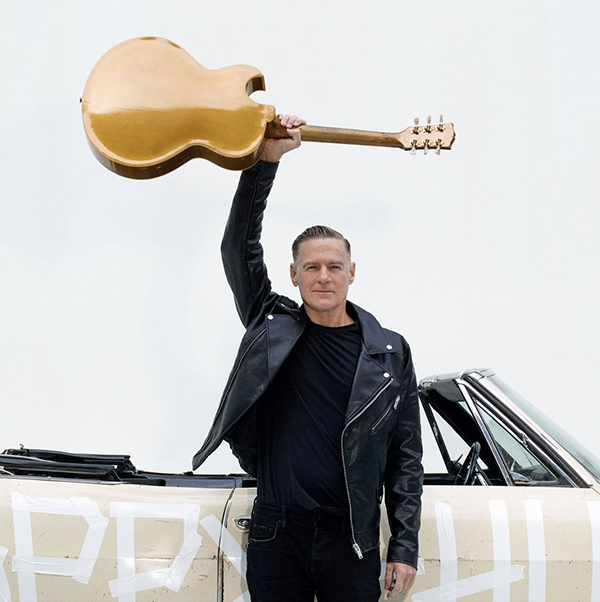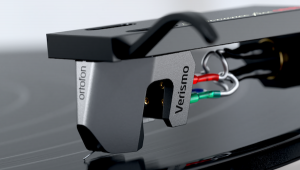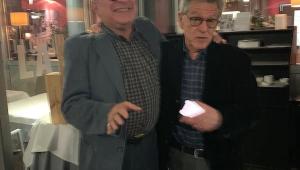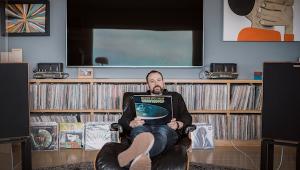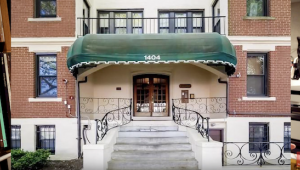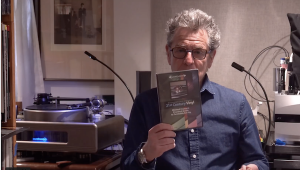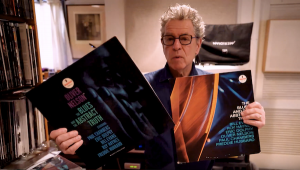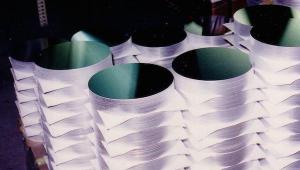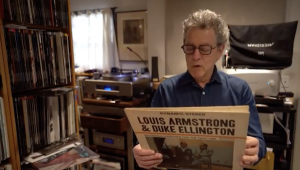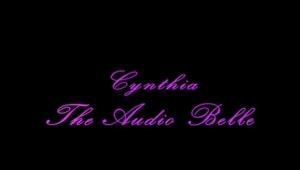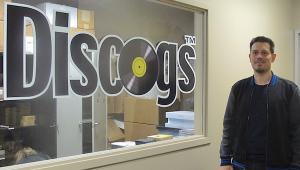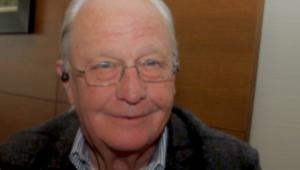Bryan Adams Does Everything for You Until It Hurts, and He Does It on Classic 180g Vinyl Too
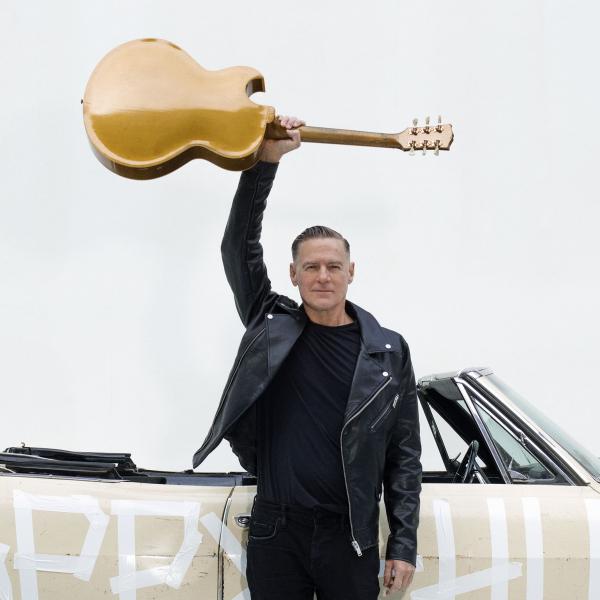
Photo by (yes) Bryan Adams, who also happens to be an acclaimed, world-class photographer.
Bryan Adams is a consummate and restless performer, so when the lockdown happened, he got right down to work in his home studio to keep himself busy before he could get back out on the road again. Not only did he come up with an album of all-new material — March 2022’s So Happy It Hurts, a 180g 1LP offering via BMG — but he also took a long, hard look at the four-plus decades of his recording career and decided to recut many of his favorite tracks himself under the umbrella of Classic. Initially, over a dozen self-selected classic Adams songs, with all the vocals sung anew and essentially all the instrumentation played by the man himself, were released digitally in two increments this year as Classic and Classic Pt. II.
That’s all well and good, of course (and there’s also an expanded 2CD Happy/Classic super deluxe edition now available as well for those so inclined), but we hardcore analog fans prefer to drop the needle on prime cuts like these — and thankfully, they will soon enough be made available on three sides of a 180g 2LP set from BMG in January 2023 for $35.98. (Side D of both the neon orange and black vinyl editions of Classic showcase Adams’ silhouette on a spiral background.) Meanwhile, the 180 1LP of So Happy It Hurts, available in both black and white vinyl options, goes for $24.98. (Any/all versions of either LP can be obtained here at Adams’ official store.) The pressings stats for both albums are these — the music comes from direct metal masters (DMM). The vinyl is being pressed at Precision in Canada, and GZ in the Czech Republic. The mastering was done by Adams’ own protégé engineering partner, Hayden Watson.
Adams began working on all this music in his home studio in Canada, and things progressed from there in short order. “Yes, I was making demos,” Adams confirms, “and the demos became masters. What I would do is put together the acoustic guitar and vocal track, and then I would start layering it. I would go back in, and I would add a bass. And then maybe I’d add electric guitar, and then I’d add a drum track.
“And then,” he continues, “I’d listen to it and think, ‘Okay, well, that’s not bad. Maybe the tempo’s wrong. Start again.’ Next, I’d do it up a couple of beats, or maybe it needed a different groove. What I was doing was creating a song from the ground up each time, with no particular ambition other than just to make songs — and make them as rocking as possible. It all started in my house, and then my young engineer Hayden [Watson] and I moved over to the Warehouse Studio in Vancouver, which is a proper facility.”
For the record, Watson began working with Adams on his March 2019 studio effort, Shine a Light, in quite the auspicious manner. “He was making the tea at the studio,” Adams recalls, “and one day, the engineer just didn’t come in for some reason. I looked at Hayden and I said, ‘Do you know how to work all this?’ And he went, ‘Yep.’ I said, ‘Well, sit down.’ After that — he never left. And that’s how these things start off. You just have to wait for the other engineer to have a bad day, and then you’re in.” (And it feels so right. . .)
Adams, 63, and I got onto Zoom together across the northern border to his native Canada to discuss why he not-so-secretly always wanted to be a drummer, why vinyl remains such an important touchstone to him to this day, and what songs might make the cut for the next installment of Classic. Those were the best days of my life. . .
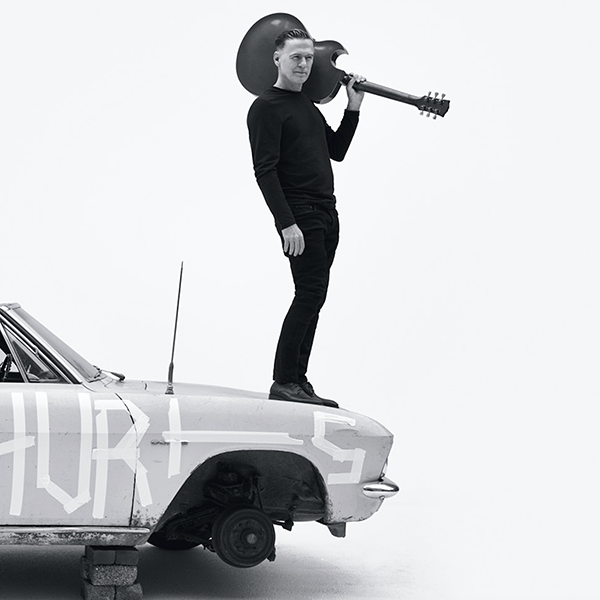
Mike Mettler: We’ll get to how you remade over a dozen of your songs for Classic in a minute, but let’s get into the nitty-gritty of how you made So Happy It Hurts first. The way I understand it is, it’s almost a hundred percent you, working alone. How did that feel to be essentially a one-man band?
Bryan Adams: Well, it was just a matter of circumstance, because at the time it was during the lockdown, and I just didn’t have access to everybody. I was just messing around, and making demos — that was what I was doing. I bought myself a drum kit because I always loved playing drums, and decided I would start making these tracks up, and seeing how that all would come together — and the demos just turned into masters.
Mettler: We usually see you playing guitar or bass. How long have you been playing drums? All your life, or was it just something that happened later on? How did that come about for you?
Adams: Well, secretly, I really always wanted to be the drummer of the band, and I just never had the chance to learn it properly. I didn’t have the space to put a drum kit. And somehow or another, I managed to work out that I could sing okay.
What happened was, even during the course of making my records, I would always be onto the drummer about how I wanted things to be and how I imagined it, and what fills would go where. And I used to sing drum parts to the drummers.
Mettler: Is there a good example from the first couple of your albums where you got what you heard in your head by doing it that way?
Adams: Oh, sure. Any of the early records — I mean, if you think about things like “Cuts Like a Knife” [from the January 1983 album of the same name] and those big drum fills, and those kind of things — and I’m not taking anything away from Mickey [Curry], or any of the great drummers I’ve worked with, because they’re all brilliant. In fact, when I was doing the recreations of these records — the Classic versions I made this year, I mean — trying to get some of those drum pars really was tough.
Mettler: I can imagine, yeah. But now I’m thinking about some of those moments in “Cuts Like a Knife,” like where you’ve got that dramatic pause before you get that big drum hit [at 3:23 in the original track, for those keeping score]. Is that something you envisioned as the songwriter?
Adams: Sure. Yeah. Those things — the structure of the songs would’ve been by Jim Vallance [Adams’ main songwriter partner over the years] and myself. And then, in terms of the production and how it would be delivered, I was quite adamant the drummer had to be quite explosive.
When I was making [November 1984’s] Reckless, I saw a kid playing in a club and loved him so much that I said, “Man, do you wanna come in the studio tomorrow and do some tracks?” And he looked at me like, “What?” That was Pat Stewart, and he ended up playing on “Summer of ’69” and “Kids Wanna Rock.” All I had to do was sort of shout at him, and he would just go. And he’s playing live with us now.
Mettler: That’s great. And I gotta say, I love the perfect echo that’s on your vocal on the Classic version of “Summer of ’69.” The way you capture that vintage ’83/’84 sound of yours to where it sounds more like today — I’m guessing in your mind, you had to feel like, “I gotta pay tribute to what I did originally, but it’s gotta be how I perform it today.”
Adams: Sure, that’s right. You know, with each one of these songs, I was quite meticulous about how they were put together because I wanted to be faithful to the originals — but I wanted it to sound like it could still work today, and upgrade them in some level so they’re true to how we perform them.
And when it comes down to things like echos and sounds like that, I went back to [Bob] Clearmountain, who’s been my friend for a hundred years [he co-produced all but one of Adams’ studio LPs released in the 1980s], and said, “Bob, can you mix this and get it to sound like that?” And he was like, “Yeah, let’s do it.” It was quite interesting for him and I to both go back down memory lane, and recreate these masters again because. . . (slight pause) Wow. What an incredible time for both of us. To go back and do those dissections, and look at it all from a different angle and see if we can make it work today — I think we pulled it off.
Mettler: As somebody who bought those ’80s records originally, I can agree with that. I think it just goes to show you guys captured something special here. And since you started out releasing your albums in the vinyl era, are you now finding a touchstone back to those days? What do you, as an artist, feel about that now, as you’re putting out vinyl again for your new releases?
Adams: I’m really okay with it. I think the days of vinyl were really fun, because that was one of the reasons why I became a musician. I used to pour over album covers. I used to spend hours looking at Deep Purple: Machine Head [released in March 1972], and just looking at every little picture of the places they recorded, and what they were recording with.
All those records were just super-influential. It’s such a shame kids don’t get that today, because that’s one of the things that was exciting about music — not only finding the music that you like, but then you get to open up this gift, this package, you know? You would have all this beautiful artwork and creation and lyrics, and it was a thing. It was like a Christmas gift, every time you got a new album.
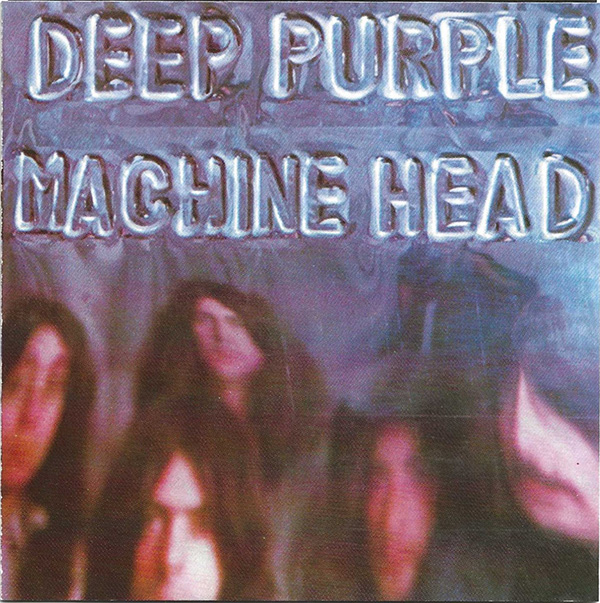
Mettler: Yeah, and that’s a perfect way of putting it. And I agree with looking at and listening to Machine Head, because you look at that cover and you’re like, “What is going on there?” It’s all shiny and angular — and in those days, unless you knew what the phrase “machine head” meant, you didn’t necessarily know it was relating to a guitar [and its headstock]. Taking in all that stuff was just fascinating.
Adams: It’s genius. Really, really good.
Mettler: When you were growing up, what other albums were your talismans?
Adams: (begins listing them all rapid-fire, with no hesitation) Revolver, Sgt. Pepper, Willie and the Poor Boys, Bridge Over Troubled Water, Déjà vu, Led Zeppelin I, II, III, IV, 5, 6 (MM laughs), most Deep Purple records, The Who: Who’s Next. Alice Cooper. I mean, it could go on and on. (laughs)
Mettler: It could! But this is all great stuff — and we can hear this in your DNA, because as a songwriter, you cover so many bases. I can hear the attack of a song like “Run to You” [from Reckless], or even on more modern songs of yours like “Kick Ass” and “I Ain’t Worth Sh-- Without You” [both from So Happy It Hurts] that have all that meat and punch that clearly shows you were taking notes. You knew what needed to be done with certain songs, and how to really give it to us.
Adams: Thanks. Yeah, it was a lot of fun making those records.
Mettler: I really love opening up the gatefold of the Hurts LP and seeing things like the full photo of you sitting on the hood of your car with the album title spelled out on the side of it.
Adams: Well, you’re talking to the converted here.
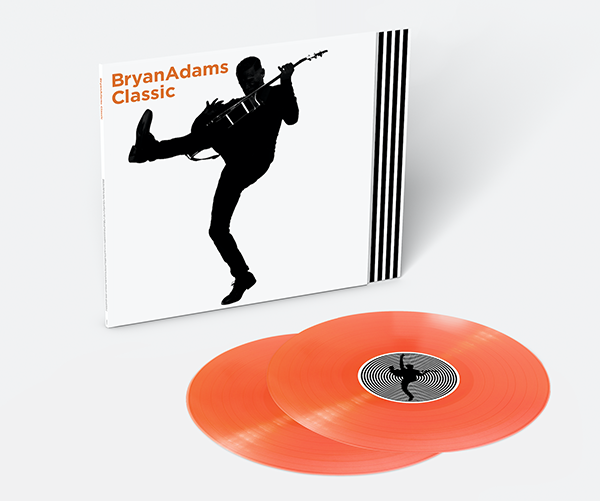
Mettler: Yeah, so let’s convert some new people too. You also offer white vinyl for the Happy album, as we’ve got orange black options coming for Classic. Is that something that was brought to you as an idea, or did you wanna do that yourself?
Adams: That was BMG’s idea. Actually, it might have been Dirk Rudolph, who’s the creative designer. He wanted to do something that was fun like that. And I thought, “Yeah! Come on!” It brings me back. Do you remember Alice Cooper’s School’s Out [which was released in June 1972]?
Mettler: Yeah, yeah! That’s the one with the panties, right? Are we allowed to say that? (laughs) [MM adds: Look that one up for yourself if you don’t know what we’re talking about here. . .]
Adams: I mean, you couldn’t get away with that today.
Mettler: Right? That reminds me of things like [October 1970’s] Led Zeppelin III that has the spinning wheel on it. . .
Adams: I have that record, yep!
Mettler: And then The Rolling Stones’ Sticky Fingers [released in April 1971] had the zipper on it, so you had to be careful because you would mess up other record sleeves when you put it in the slot and stacked it.
Adams: That’s right, it did. There was so much stuff to interact with on those records, wasn’t there?
Mettler: Sure was — I was so happy with records like those that it hurt, to borrow a title. And speaking of So Happy It Hurts, I have to ask you — at the beginning of the song “So Happy It Hurts,” are you, as the drummer, paying homage to “Don’t Bring Me Down” from ELO, when you start that song? [“Don’t Bring Me Down” got to No. 4 on the singles chart, and it comes from Electric Light Orchestra’s monster June 1979 LP, Discovery.]
Adams: Ooh! I didn’t think that — but I was just rocking it. I love that record, and Jeff [Lynne]’s a great drummer.
Mettler: I know Jeff produced one of your more recent albums [October 2015’s Get Up], so I was just wondering if there was a lingering Jeff feel for that one.
Adams: I learned a lot from working with Jeff, and Jeff was actually very influential in how this album came together, in a way, because he said to me, “Man, why don’t you do it yourself?” And he also encouraged me to re-record my masters too, because he’d done it not that long time ago. [Lynne recut a number of well-known ELO tracks entirely by himself for October 2012’s Mr. Blue Sky: The Very Best of Electric Light Orchestra.]
Mettler: Yeah, that’s right. I talked to Jeff around the time that album came out, and I feel quite the parallel there. You, as the artist, have played a lot of your songs for, I guess we’re going on 40 years for a good bunch of them — that you know how it should sound now. We always say things like the record you put out in ’83 was the snapshot of what you did back then. And since I’m a huge fan of [March 1987’s] Into the Fire — that’s probably my favorite album of yours — when you do Pt. III of Classic, can we get “Heat of the Night” on there?
Adams: Well, thank you. That, actually, is not a bad idea. Okay.
Mettler: Here’s hoping. Also, “Remember” [from February 1980’s Bryan Adams] and “Lonely Nights” [the opening track of July 1981’s You Want It, You Got It] would both be good ones for Pt. III too, I think.
Adams: “Lonely Nights” — that would be a really interesting one to try and capture again. That song was actually the beginning of my sound. “Remember” might have been the precursor, but certainly, when I recorded “Lonely Nights” [at the Power Station] in New York in ’81 — I remember getting back to the hotel and playing it for Jim Vallance, my co-writer, but I was playing it from over the phone through a Walkman. So anyway, yeah — that would be a lot of fun to figure that one out.
Mettler: Didn’t you have to lobby radio stations in person to get them to add “Lonely Nights” to their playlists? I heard it on the radio in Virginia, so, to me, it was a highlight of your live set when I saw you open for Foreigner in Roanoke on March 30, 1982.
Adams: Wow, that’s so super-kind of to say! I have such good memories of all that time. It was exciting because, even though nobody knew it, I felt we were onto something — but we just had to convince everybody else that we were. One of the jokes was, I originally was gonna call the album Bryan Adams Hasn’t Heard of You Either (MM laughs) — and my record company wouldn’t have it. I still think that would’ve been a great title for the album.
Mettler: Oh, I think so too. Well, to borrow another title from that album, I think they had some “Jealousy.”
Adams: Yeah, excellent. Keep those ideas coming, Mike. If I did that song again, I would have to rethink how to do it, because I was never completely happy with the way that one came out.
Mettler: Well, one final thing before you have to go that I always like to ask people like yourself. Here it is — I wanna project you 50 years into the future. It’s 2072. Unless science has done something magical, probably neither you nor I will physically be on the planet at that stage. So, 50 years from now, if somebody cues up “Bryan Adams” for however they’re listening to music then — what do you want that person to get out of that experience?
Adams: Just to keep rocking. I think that, no matter what they say about rock music, I hope it still exists on some level 50 years from now, because there’s nothing like it. And that’s why, if you think about what’s happening with the live music business today, rock fans do really well. Everybody — everybody — loves to rock out.
I think I wrote a song about it in ’84, which is called “Kids Wanna Rock.” It might sound really cliché to say that, but I just hope everyone keeps rocking.
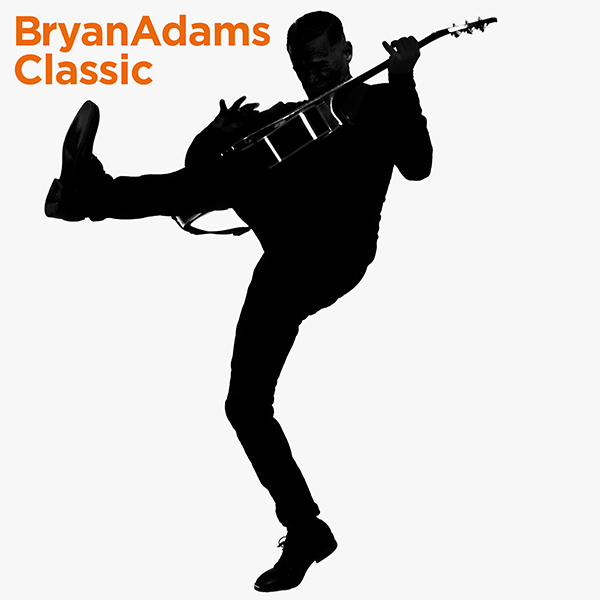
BRYAN ADAMS
CLASSIC
180g 2LP (BMG)
Side A
1. Summer Of ’69
2. (Everything I Do) I Do It For You
3. Run To You
4. Heaven
Side B
1. Can’t Stop This Thing We Started
2. Cuts Like A Knife
3. Please Forgive Me
4. Straight From The Heart
5. Hidin’ From Love
Side C
1. When You’re Gone (Ft. Melanie C)
2. Here I Am
3. When You Love Someone
4. Back To You
5. Have You Ever Really Loved A Woman?
Side D
(no music; features Adams’ silhouette on a spiral background)
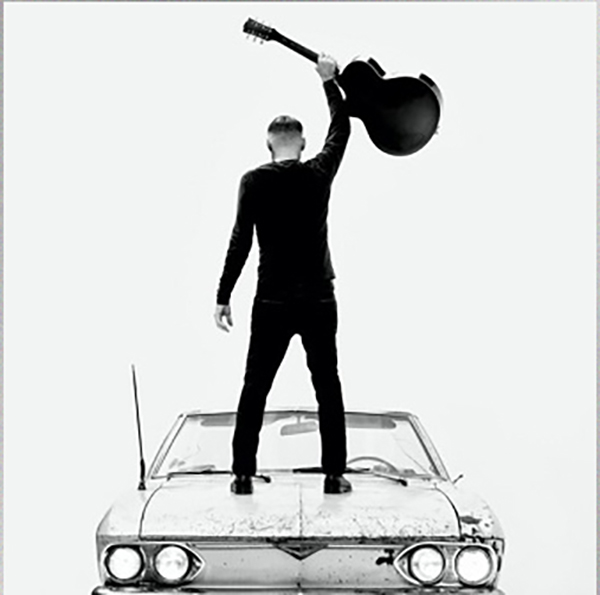
BRYAN ADAMS
SO HAPPY IT HURTS
180g 1LP (BMG)
Side A
1. So Happy It Hurts
2. Never Gonna Rain
3. You Lift Me Up
4. I’ve Been Looking For You
5. Always Have, Always Will
6. On The Road
Side B
1. Kick Ass
2. I Ain’t Worth Sh-- Without You
3. Let’s Do This
4. Just Like Me, Just Like You
5. Just About Gone
6. These Are The Moments That Make Up My Life
